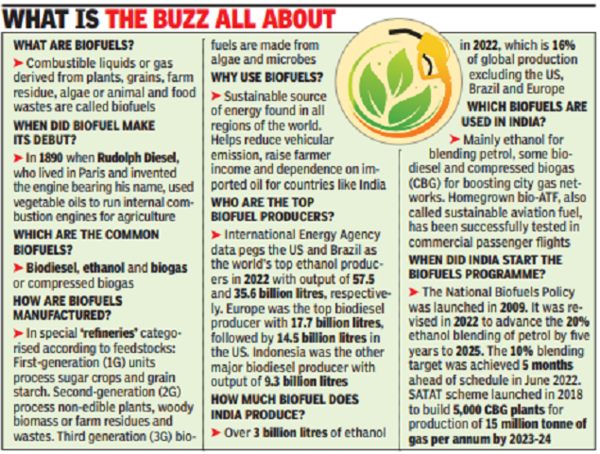The International Solar Alliance, jointly launched in 2015 by Prime Minister Naredra Modi and his French counterpart Francois Hollande at the Paris CO was the first such idea that had catapulted India at the centrestage of climate action.
On Wednesday, the Cabinet put its stamp on the GBA, comforted by the fact that 19 countries had agreed to stand with India as initiating members of GBA at the G20 14th energy transition ministerial meeting in Goa in July.
The US support was articulated by energy secretary Jennifer Granholm, who, an oil ministry statement had then said, “recognised” the establishment of the alliance as a critical step in their biofuels journey with the aim of moving from “test tube to test drive and field to fuels”.
As Italy, Kenya, UAE and Brazil – the next G20 President and the world’s second-largest biofuel producer – underlined the need for sharing best practices across policy, technology and implementation, the realisation dawned on the Goa forum that GBA will be useful in providing a collaborative approach needed to deal with challenges regarding feedstock management, developing standards and technological innovations.
Biofuels are derived from a variety of biomass and considered a low-carbon, affordable and sustainable source of energy. In India, the Modi government is pushing biofuels such as ethanol blending of petrol and compressed biogas (CBG) to reduce the economy’s carbon footprint, dependence on imported oil and raise income of farmers.
India achieved 10% ethanol blending of petrol in June last year and has a target of 25% blending by 2025. Under the 2018 SATAT scheme, 5,000 CBG plants are to be built for an estimated annual production of 15 million tonne of gas by next year. India currently has a total ethanol production capacity of 947 crore litres.
